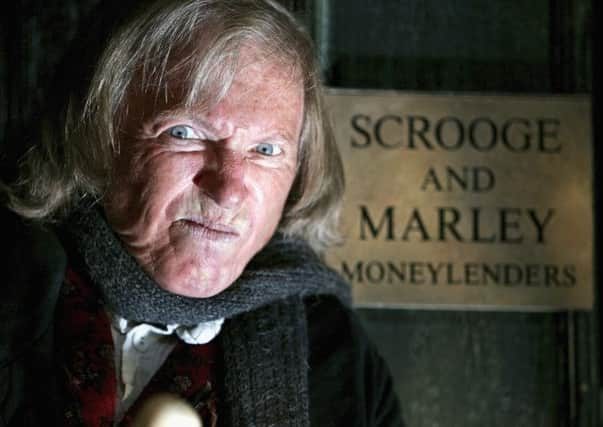David Maddox: More cuts to end season of goodwill


It was as if the Iron Chancellor had looked at Dickens’ A Christmas Carol and wondered what it would be like if Scrooge had chatted to the three ghosts and decided that there was no need to mend his ways after all and instead become even meaner. But it was not grim Mr Osborne who let slip the real target for cuts after 2015 but the smiling Mr Fezziwig of the coalition, David Cameron, who suggested that the party might be over for Britain’s pensioners to make up the £25 billion of cuts outlined by his Chancellor.
On the face ot it, it might look like pensioners are doing better than many others. While every budget bar health, schools and overseas aid has been slashed, with welfare taking the full force of recent cuts, benefits for pensioners have not only been protected but the state pension itself has had a triple lock guarantee of going up each year by whatever the highest rate of either inflation, average wage rises or 2.5 per cent.
Advertisement
Hide AdAdvertisement
Hide AdThis has meant that approximately half of the total welfare bill has gone untouched at a time when austerity has been the watchword of economic policy. The reason for this is that pensioners are more likely to vote than almost any other demographic and the promise made to them by David Cameron in the 2010 election was seen as key to getting the Tories anywhere near victory.
But now Mr Cameron has admitted that things such as winter fuel payments may go for some or could be means tested, something his Lib Dem colleagues have been pressing for. However, he is sticking to the triple lock for the state pension which is the big ticket item. Interestingly, Labour leader Ed Miliband is now questioning whether the triple lock is affordable. The move by Mr Miliband suggests that he now does want to seem economically prudent having effectively opposed all the coalition cuts so far, but it is a risk if pensioners vote for other parties as a result.
Meanwhile, the issue is already playing in the independence referendum debate. In what opponents might describe as the SNP promising Christmas past, present and future all at once, voters in Scotland are being told their pensions and pensioner benefits will all be guaranteed and protected and can be enjoyed at least a year earlier than in England with independence.
The reality though is that whatever happens to the UK in terms of Scotland’s future, and whatever party is in control, savings will have to be made. Mr Osborne’s speech was really about making sure the 2015 election agenda is about how, not whether, to cut. With other budgets now stretched, whoever is in government will have to look at the untouchable areas so far, including the state pension, and the grey vote is unlikely to be happy with the result.